Back
How Can We Make This Work? Evaluation of Hospital and Community-Based Programmes for Older Adults in Singapore
Making Interventions Work for Older Adults: Insights from the ARN Symposium
How do we design effective interventions for older adults? What challenges do we face, and what lessons can guide us? More importantly, how do we future-proof programmes to ensure sustainability?
These critical questions took centre stage at the recent Ageing Research Network (ARN) symposium, "How Can We Make This Work? Evaluation of Hospital and Community-Based Programmes for Older Adults in Singapore," organized by the Centre for Ageing Research and Education (CARE). Researchers from four leading institutions shared key findings on interventions supporting healthy ageing, cognitive health, and frailty management.
Key Highlights
- Community-Based Functional Screening – Findings from the evaluation of Project Silver Screen (PSS), a national-tiered functional screening programme, was presented by Assoc. Prof. Rahul Malhotra (Deputy Director & Head of Research, CARE) and Dr. Ad Maulod (Principal Research Scientist, CARE). CARE’s evaluation revealed that vision, hearing, and oral health impairments often co-occur, leading to serious psychosocial consequences. CARE recommended co-locating screenings with treatment services for greater accessibility, faster diagnosis, and improved care coordination.
- Technology & Ageing – Prof. Yow Wei Quin & Dr. Kou Salon (Singapore University of Technology and Design, SUTD) explored the potential of digital tools in addressing older adults’ psychosocial health. Their research found that dual-language cognitive training led to greater improvements compared to single-language or no training, highlighting the role of innovative technology in enhancing cognitive function and social engagement.
- “Frailty-Ready” Hospitals – Dr. Grace Sum Chi-En (Geriatric Education & Research Institute, GERI) and Dr. Justin Chew (Tan Tock Seng Hospital) introduced Inpatient Nursing Frailty Assessment (INFA)—a nurse-led intervention aimed at improving care coordination for older adults with mild to moderate frailty during hospitalisation and post-discharge. Their goal? Establishing frailty-ready hospitals to better meet the needs of Singapore’s ageing population.
- Integrated frailty support system –Dr. Woan Shin Tan (Deputy Director of Research, GERI) presented findings from the Geriatric Services Hub (GSH)—a pioneering hospital-community partnership for early frailty detection and intervention. Research emphasized the need to integrate GSH into a broader national frailty strategy to ensure continuity of care for older adults.
Key Takeaways
- Applying theoretical frameworks enhances programme development and evaluation.
- Early engagement with researchers ensures evidence-based programme design.
- Dedicated funding is essential for rigorous evaluations.
- Behavioural, familial, organisational, and societal factors must be considered to drive long-term impact in terms of intervention engagement and outcomes.
The symposium underscored the power of research-driven solutions in shaping sustainable, effective interventions for older adults. As we continue to tackle the challenges of an ageing society, collaboration between researchers, policymakers, and practitioners remains key.
#AgeingResearch #Loneliness #CognitiveHealth #FrailtyCare #HealthyAgeing #ProjectSilverScreen #TechnologyAndAgeing #HealthcareInnovation
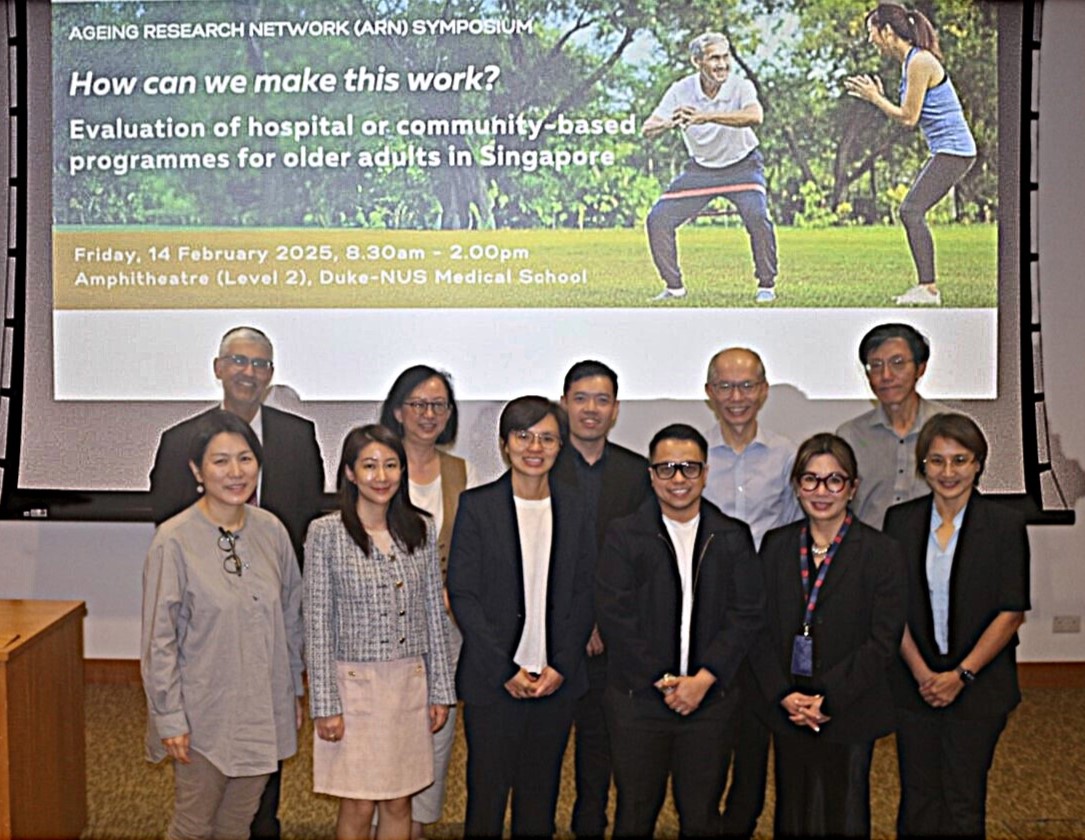
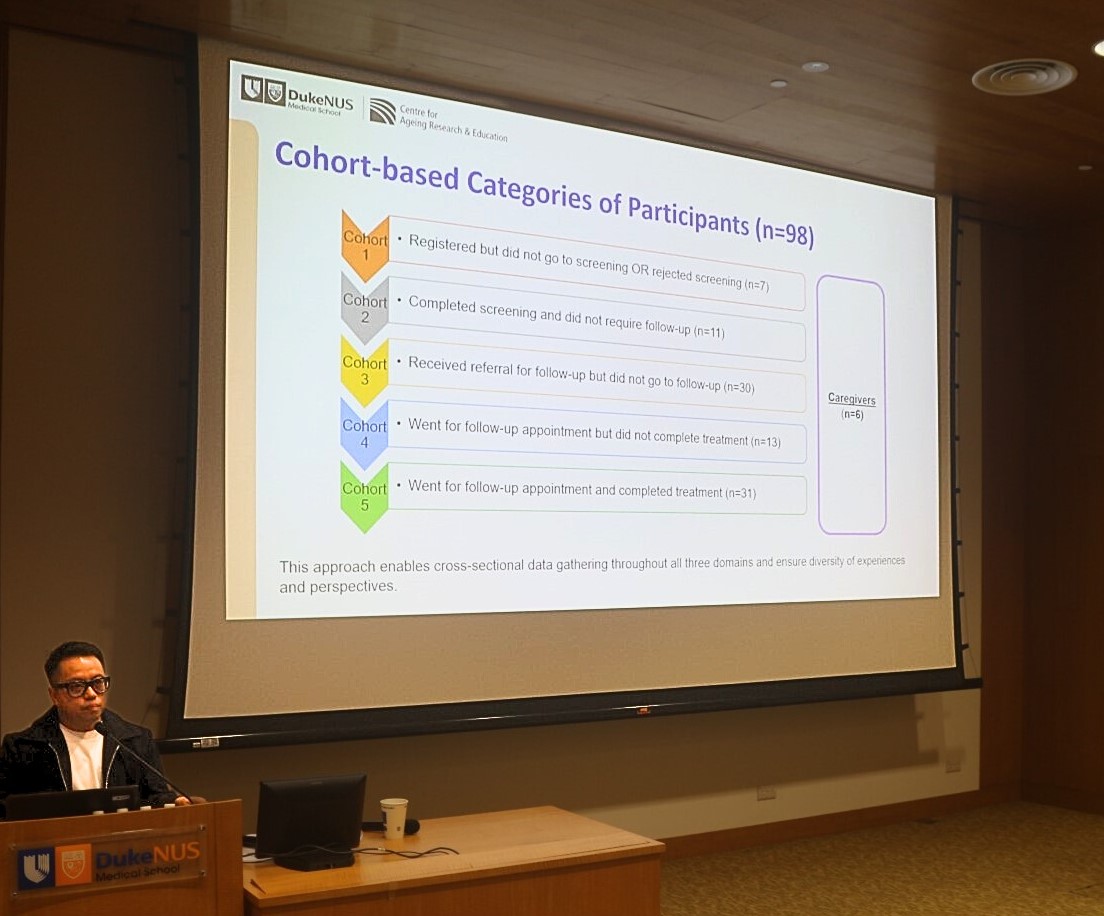
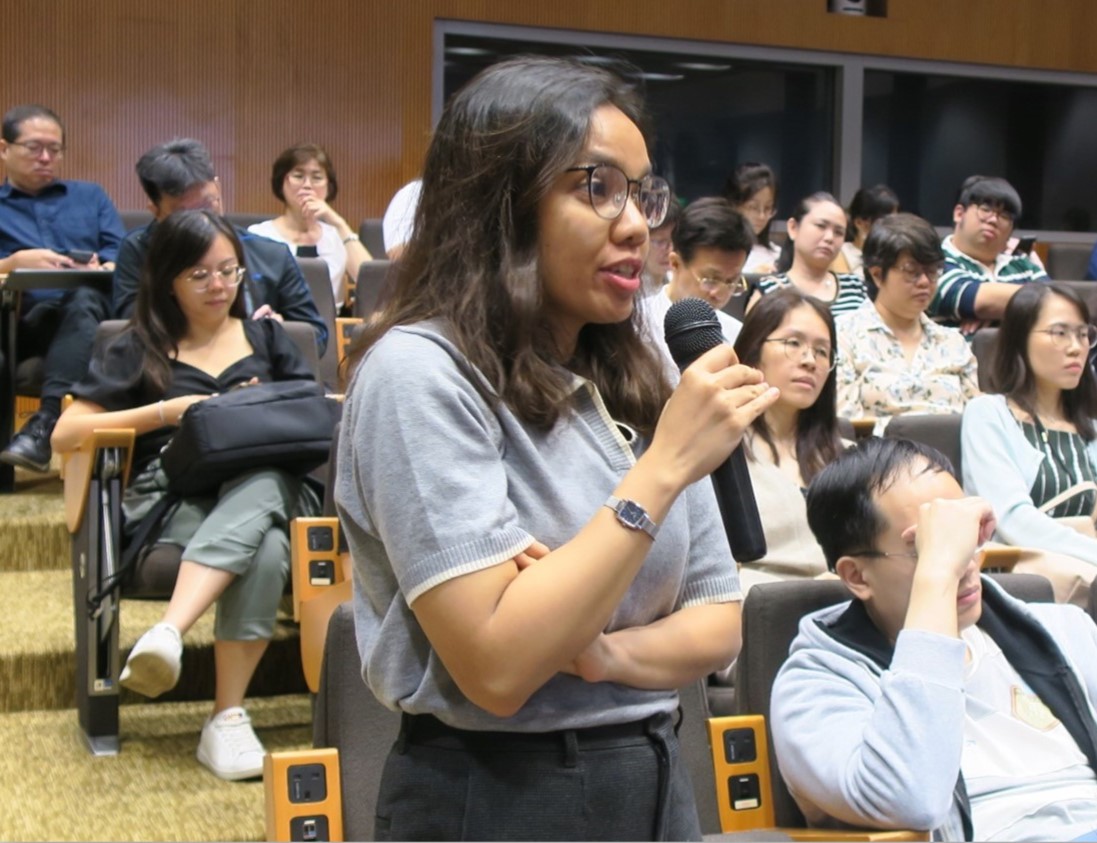
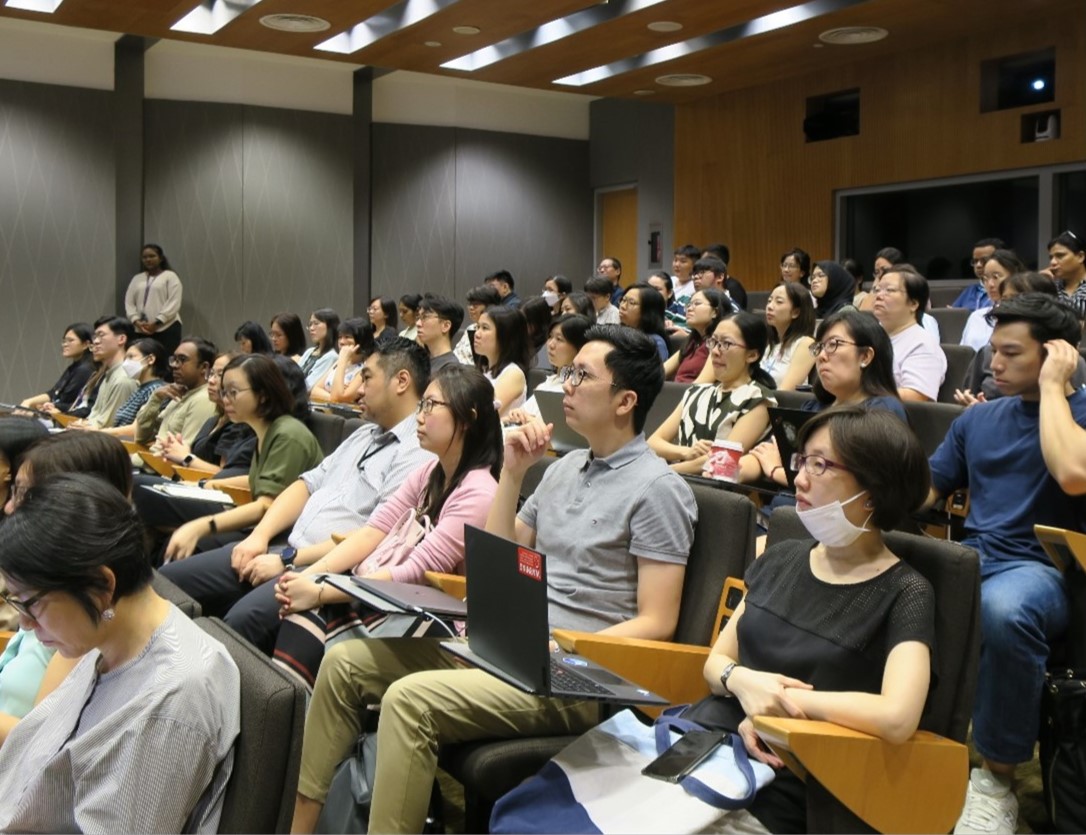
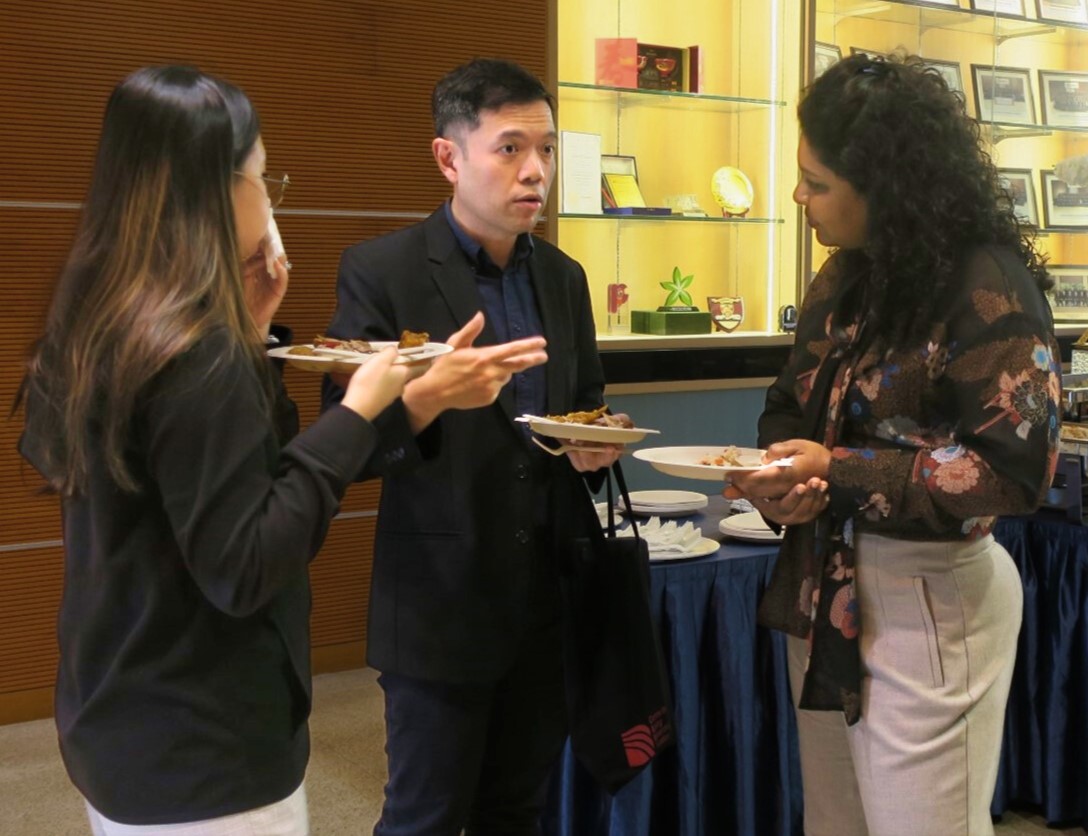
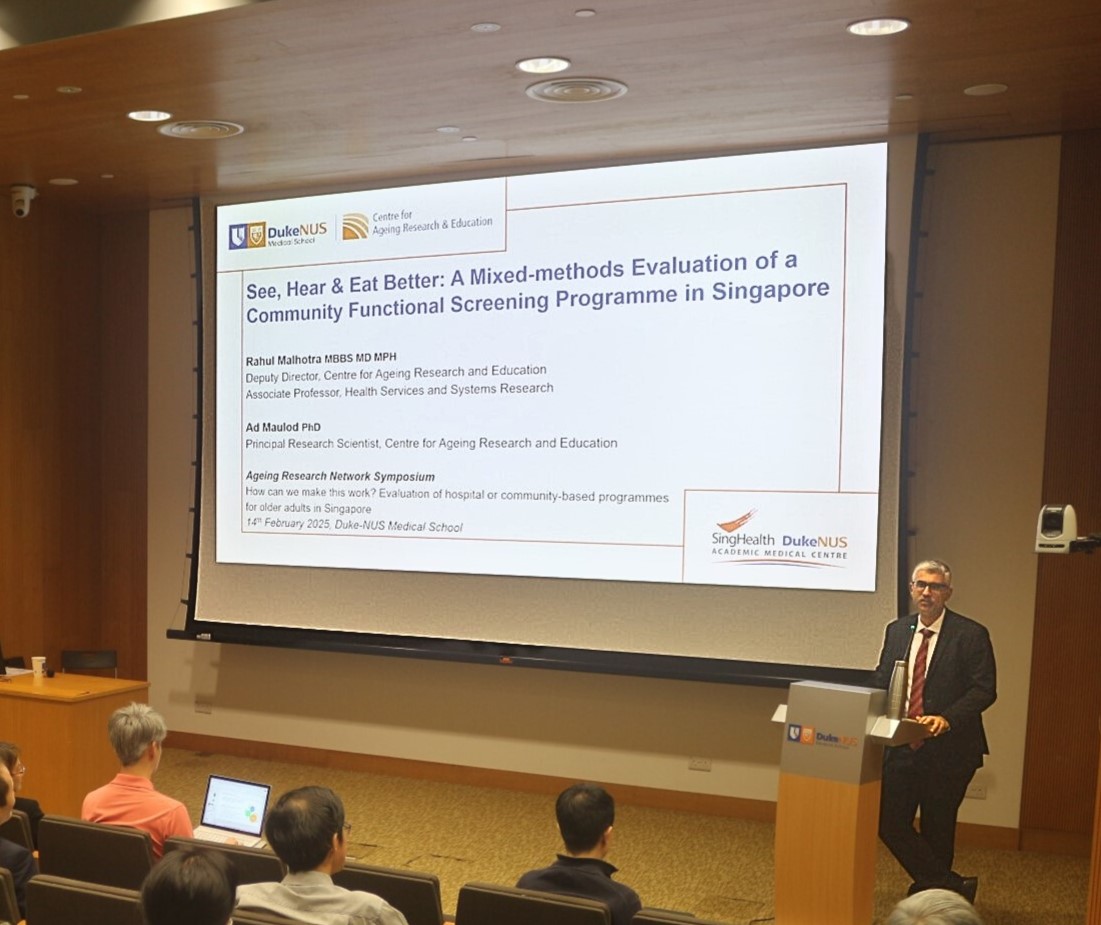
Date and Time
14 Feb 2025 @ 08:30 - 14 Feb 2025 @ 13:00